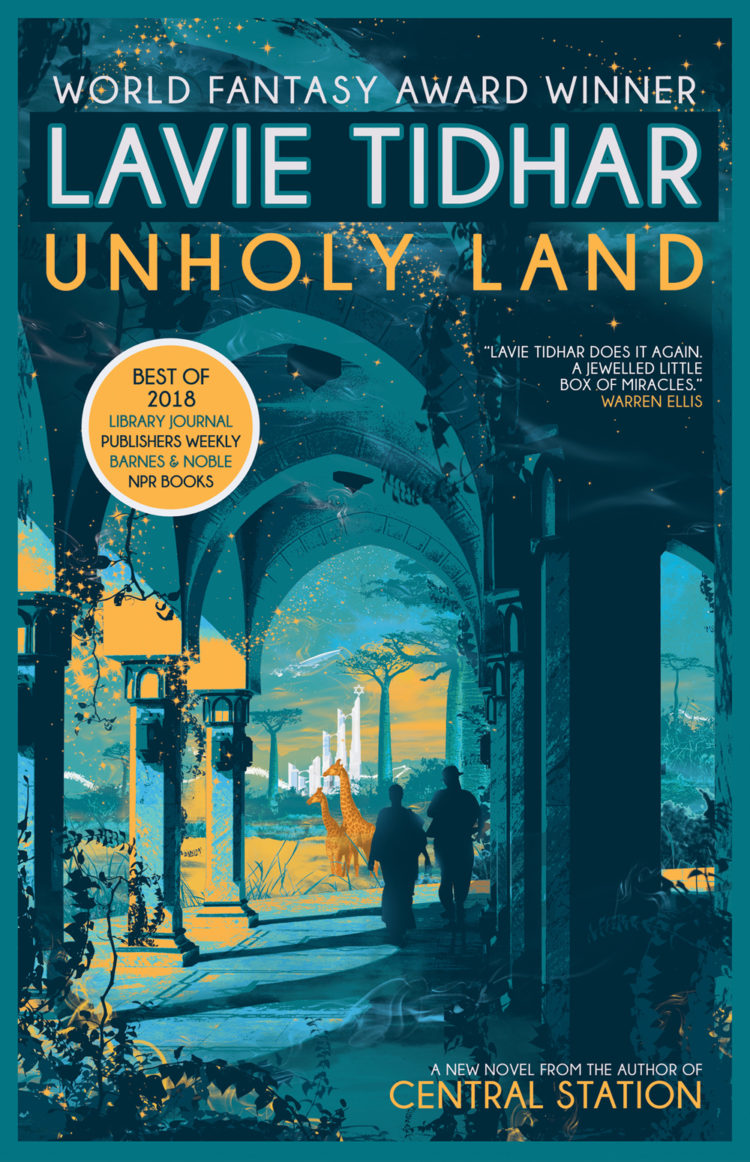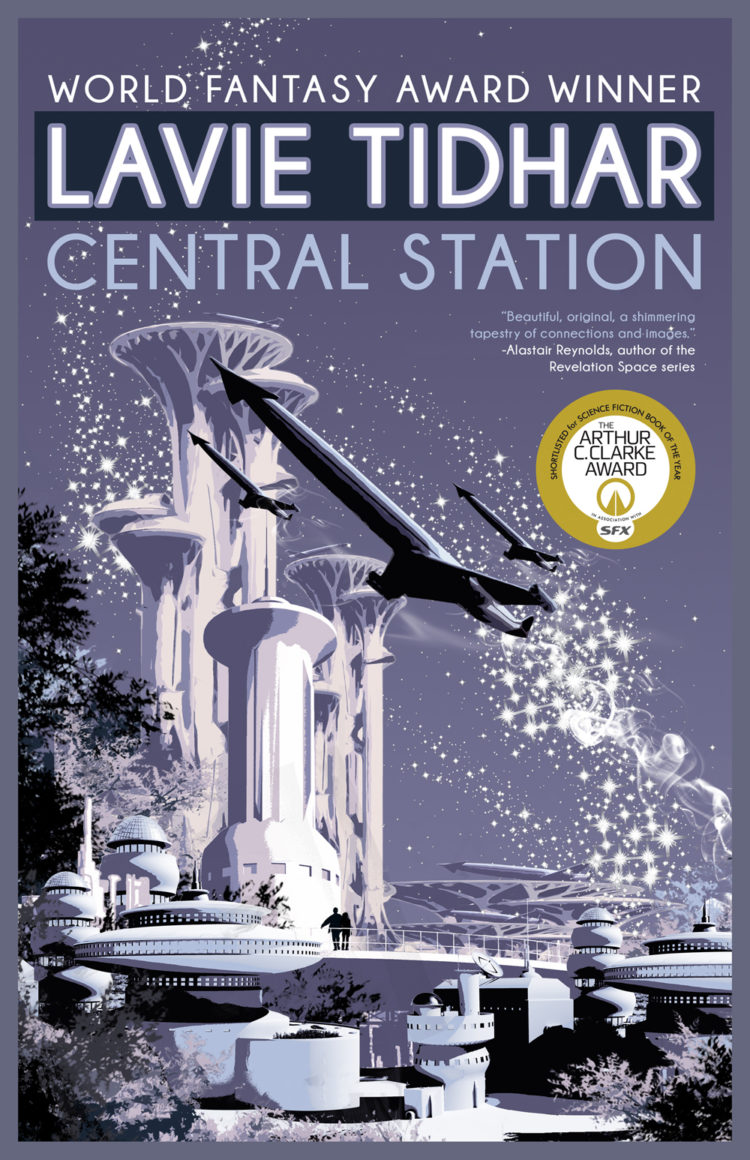Even among Lavie Tidhar’s award winning body of work, UNHOLY LAND stands out as something special

Richard K. Morgan, on his eponymous site, recommends Lavie Tidhar’s UNHOLY LAND.
Even among Tidhar’s award winning body of work, UNHOLY LAND stands out as something special. Here you’ll find the same anarchic rage and rebellion as elsewhere in his fiction, but tamped right down in favour of a deeply humane, melancholic meditation on human potential, longing and loss.
SPARKLYPRETTYBRIIIIGHT feels much the same.
Tidhar shows a supreme mastery of the idea of alternate universes from the get-go, giving not only the obvious exploration of worlds that are stunningly the same as ours but just different enough to send people into a uncanny valley of unease.
Foundation: The International Review of Science Fiction has made a call for papers for Decolonising Science Fiction. Within the description they cite Tidhar’s award-winning novel CENTRAL STATION.
In the wake of the worldwide protests after the killing of George Floyd, and the toppling of statues implicated in the legacy of the slave trade, we propose a special issue of Foundation on the topic of ‘decolonising science fiction’. As John Rieder and others have argued, the emergence of sf as a genre is embedded in colonial discourses of the late nineteenth century. The pursuit of new frontiers in outer space, within the Earth or under the oceans not only mirrored ‘the scramble for Africa’ but was also informed by the racialist and pseudo-scientific ideologies of the period. In more recent years, authors such as N.K. Jemisin, Jeannette Ng and Tade Thompson have sought to confront sf with the racist legacy of its origins. Afrofuturism, expressed popularly in films such as Black Panther and the music of Janelle Monáe, is only one of the ways in which artists of the African diaspora are reimagining sf. We argue, though, that the decolonisation of sf goes beyond Afrofuturism and necessitates other indigenous futurisms. At the same time, we also need to consider the work of white authors (Gwyneth Jones’ White Queen, Geoff Ryman’s Air or Lavie Tidhar’s CENTRAL STATION) who are engaged in critiquing the Anglo-American tradition. Lastly, the intersectionality of critical race studies necessitates that we also consider decolonisation not only in terms of race but also in the intersections with gender, sexuality, class and the (dis)abled body.
Topics may include (but are not limited to) the following:
- Race and racism in science fiction
- Critical race studies and the history of science fiction
- Institutional racism in awards, publishing, fandom and sf criticism
- Afrofuturism and indigenous futurisms
- Utopia and the ‘decolonisation of the mind’
- Hauntology and ‘lost futures’
- ‘Womanism’ and Fourth Wave Feminisms
- Intersectionality – race, gender, sexuality, class, disability
- Sf and border theory
- Teaching a decolonised science fiction curriculum

